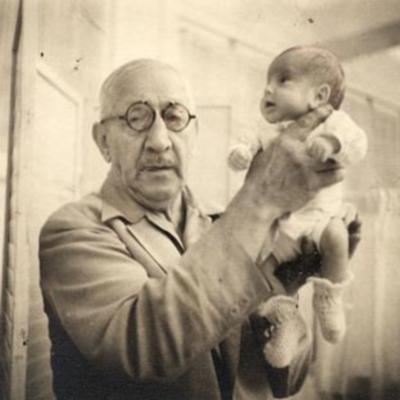Was Coney Island’s ‘Incubator Doctor’ Martin Couney A Fraud?

Much ink has been spilled about Dr. Martin Couney, the famed — or infamous — incubator doctor, a medical pioneer who saved thousands of premature babies through his Coney Island side show exhibit at a time when mainstream hospitals were slow to adopt the newfangled incubator technology.
The Coney Island baby exhibit, which charged spectators 25 cents to view, was painted red, white and blue and cost $75,000 ($1.4 million today) to build. The preemie show was always somewhat controversial, with some criticizing Couney for exploiting the tiny infants as entertainment, but many of Couney’s now grown preemies say that they are grateful they were given the chance at life.
However, now new details about Couney, revealed in an article by journalist Claire Prentice in Smithsonian Magazine, indicate that he was not actually a doctor at all. Pretice writes:
Throughout his career, Couney said he had studied medicine in Leipzig and Berlin. However, I could find no evidence of Couney (or Cohn/Cohen as he was known then) having studied medicine at a university in either city. To become a physician in Germany, one was required to write a thesis. The U.S. National Library of Medicine has copies of the German records: the librarians could not locate a thesis written by Couney.
Couney was deliberately evasive about his date and place of birth. I have discovered that he immigrated to the US in 1888 at 19 years old. But someone of that age would not be old enough to have studied at university in Leipzig and Berlin before going on to do graduate work in Paris at the knee of Pierre Budin, the father of European neonatal medicine, as Couney claimed to have done in numerous press interviews.
In the 1910 U.S. census, Couney listed his career as, “surgical instruments.” Though Couney claimed to be the inventor of an incubator, I have been unable to find any evidence that he registered an incubator patent in the U.S. More likely Couney was a technician. Yet by 1930 he was describing himself in the census as a “physician.”
Incredibly, Couney rose to prominence over the course of his life, hobnobbing with the likes of Morris Fishbein, then president of the American Medical Association. Despite his omissions and apparent serious ethics violations, Couney continues to be highly respected for his contribution to field of neonatal care in the medical community.
Though the exact figures are impossible to verify, Couney claimed to have saved around 6,500 of the 8,000 he accepted, and he took them in regardless of ability to pay. Read the entire incredible story on Smithsonian.




